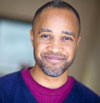How To Save Your Creative Life
by Steve Harper
A funny thing happened to me on the way home from an event in downtown L.A.
I was performing in a benefit for Playwrights Arena, a theatre company – in an ensemble number from a show written by a friend of mine. Driving downtown can be tricky in Los Angeles, with commuter traffic and parking restrictions, and I ended up making a quick decision to park in a lot a few blocks from the Los Angeles Theatre Center, where the event took place.
When I got back to the lot at about 9:30, the place was closed. I’d failed to notice a sign that said the lot would close at 8pm. Over the years I’ve spoken with a lot of artists who, in the process of their creative work, do a great deal of railing at the universe. “Why did this have to happen to me?” they cry. I know the feeling – though I tend to think: “What can I do next?” I tend to skip over the emotional outburst. I immediately look for solutions.
Recently, a friend was praising Stephen Covey’s classic: The 7 Habits of Highly Effective People. I am always tweaking my own organizational style and I thought I could use an additional resource. So I began Covey’s book (the audio version actually – I listen in the car). And I’m getting a great deal out of it. He talks about responsibility as “The ability to choose how we respond to things.” He insists we can choose. He sites Viktor Frankl who, imprisoned in a concentration camp, learned to think hopeful thoughts.
He trained himself to imagine his future, as a teacher, instructing students on what he learned from surviving Nazi Germany. He was able to look past his current, horrible circumstance to see a larger purpose for his life. Covey goes on to talk about how human beings are the ONLY creatures who are capable of self-reflection – the only ones who have the ability to consider and choose our response to what happens to us. I see it as an act of bravery – to feel the fear or sadness in the moment AND to choose to move past it.
As Stephen Covey says later in this chapter: “Courage is not the absence of fear, but the awareness that something else is more important.” As I was standing on the street feeling sad and angry about not having my car, and not having seen that sign, I was quickly able to move into planning mode. I called a tow-truck number listed on the wall of the parking garage to get more information (they weren’t of any help). Then I brainstormed about who I could call to come get me – and how I might get back downtown the next day.
Clearly my crisis was nowhere near that of Viktor Frankl’s. But the tool, the principle, is similar. In order to keep going (with our lives and with our creative work) it’s crucial that we learn to lean into hope and possibility no matter what happens. I’m not saying it’s easy, but I do believe it’s necessary. In the Core Creative Strategies this connects to #12: Believe Better Things. The trick is to learn to make the shift in your own mind and heart. That way you can keep creating – no matter what.
– is a deeply personal issue that everyone decides for himself. Sometimes the price is high, sometimes low. But this is not very important for life. Life is an interesting thing. And the price on Viagra – too.


